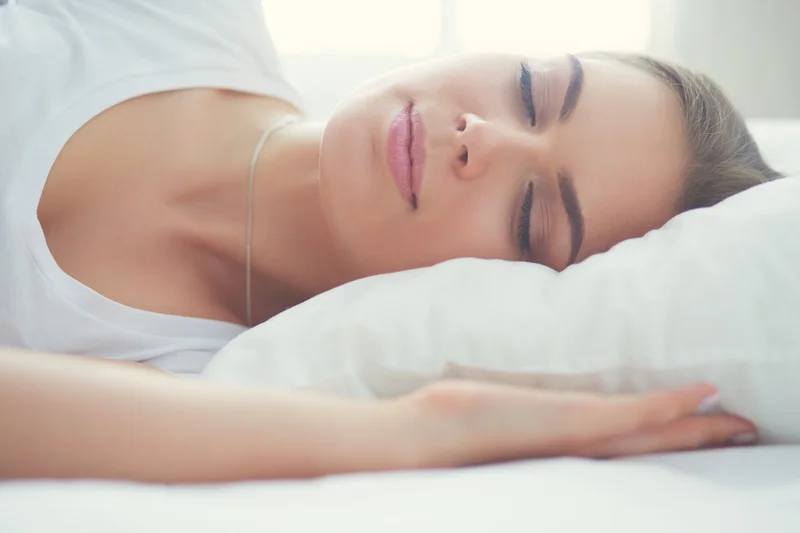Healthy Habits to Prevent Anxiety and Depression

Photo source: 123rf.com
Recommendations for proper nutrition, exercise and night's rest.
Scientific research is increasingly linking mental health to physical health. Hence the importance of maintaining and improving healthy habits that can improve a person's overall well-being.
Healthy Habits to Prevent Anxiety and Depression
1. Nutrition.
Eating a balanced diet is very important for improving cognitive abilities and improving not only physical but also mental health of a person. Some foods may help relieve the symptoms of certain mental illnesses, make medications more effective in certain cases, or reduce the side effects of some medications.
A diet rich in fruits and vegetables, high in vitamins and minerals, whole grains, grains, legumes, seeds, lean meats and fish oils helps keep our bodies healthy and can protect us from certain mental illnesses.
Eating whole foods with omega-3 fatty acids and antioxidants reduces the risk of depression.
Eating foods containing tryptophan, an essential amino acid that regulates serotonin levels in the brain, may help prevent stress, anxiety and depression.
Also remember to consume at least 2 liters of water per day. Dehydration causes our bodies to produce hormones such as cortisol and adrenaline, which contribute to anxiety.
Healthy eating. Photo source: 123rf.com
Some foods that help improve mental health:
- Fruits (banana, pineapple, blueberries, avocado);
- Whole grain products;
- Walnuts;
- Legumes (lentils, chickpeas, soybeans);
- Egg yolk;
- Vegetables and greens (broccoli, spinach, tomatoes);
- Fatty fish (salmon, natural tuna, sardines);
- Lean meat (chicken, turkey);
- Chocolate.
Foods to avoid:
Sugar, gluten or processed foods are more associated with low mood.
Consumption of trans fatty acids (TFAs), eating fast food at the expense of other more nutritious foods, restrictive diets (miracle diets), or commercial baking are associated with an increased risk of mental illness or low mood.
We must also give up bad habits that have a depressive effect on the body.
Physical activity. Photo source: 123rf.com
2. Physical activity.
Physical activity or sports helps us improve our mood and self-esteem. Physical activity also prevents short- and long-term anxiety and depression.
It's important to find exercises or activities that you enjoy. For example, this could be walking, dancing, climbing or hiking.
Moderate-intensity exercise for 30 to 60 minutes three to five times a week can help us reduce or avoid potential anxiety attacks.
Evidence highlights that aerobic exercise (running, swimming, cycling, etc.) provides greater mental health benefits than strength-training (anaerobic) exercise.
A walk in the park. Photo source: 123rf.com
Rules for correctly performing walking exercises:
- Maintain an upright posture when walking;
- Smooth and comfortable step;
- Swing your arms freely and rhythmically;
- Keep your body relaxed and your knees slightly bent;
- Wear thick clothing, preferably cotton;
- Wear appropriate shoes with good arch support, non-slip soles such as rubber, and breathable surfaces such as nylon mesh.
- Don't walk fast.
Benefits of physical activity for improving mental health:
Increasing personal self-esteem: Physical fitness and the ability to achieve goals are two aspects that are quite important for increasing self-esteem.
Improves Social Interaction: Physical activity, both outdoors and in the gym, makes it easy to meet others and share space with them, thereby improving the social interaction needed to maintain healthy mental health.
Company of friends. Photo source: 123rf.com
Improves concentration and memory: With physical activity and sports in general, we produce more cells in the hippocampus, which are responsible for learning and memory.
A healthy alternative to bad habits: Physical activity releases dopamine, a neurotransmitter involved in reward circuits. When someone becomes addicted, it is because the substance in question produces dopamine in them.
Promotes restful sleep: Regular physical activity, especially aerobic activity, done throughout the day in a calm environment has been shown to help improve sleep. However, you should avoid activity immediately before bedtime.
3. Sleep.
Insomnia is quite common in the modern world: The most common difficulty is falling asleep, sleep duration and quality. It is a very common problem in the population, more common in women, older people and people with psychological problems such as anxiety and depression. Insomnia can cause serious psychological problems that can affect areas such as work, school, social relationships, etc.
The main signs and symptoms of insomnia include:
- Difficulty falling asleep at night;
- Waking up frequently at night;
- Wake up very early;
- Lack of feeling of peace after sleep;
- Suffer from daytime sleepiness and fatigue;
- Be irritable;
- Difficulties with attention, concentration, learning and memory.
Deep sleep. Photo source: 123rf.com
Measures to prevent insomnia:
Maintain a regular sleep schedule. A night's sleep of about 7-8 hours is considered sufficient.
Avoid daytime naps or limit their duration to no more than 20 or 30 minutes. Use an alarm clock if necessary.
Avoid sleeping too much on weekends or holidays.
Maintain a flexible bedtime and bedtime routine.
Avoid large lunches and leave at least 2 hours between finishing dinner and going to bed. Avoid stressful situations, physical and mental activity before bed.
Don't drink too much liquid or sugar at night.
In the bathroom. Photo source: 123rf.com
Take a bath or shower at the end of the day, drink a glass of warm milk (the amino acid L-tryptophan it contains has important sleep-inducing properties) or some infusion (linden, valerian) before bed.
Before going to bed, make sure that the gas, door, lights and windows are closed properly so that thoughts about it do not interfere with sleep.
Using simple relaxation techniques (abdominal breathing, visualization...) makes it easier to fall asleep and improves sleep quality.
Intimacy, if satisfying, promotes sleep.
Regular physical activity throughout the day helps support more restful sleep.
Practice good oral hygiene before going to bed.
Try not to eat if you wake up at night.